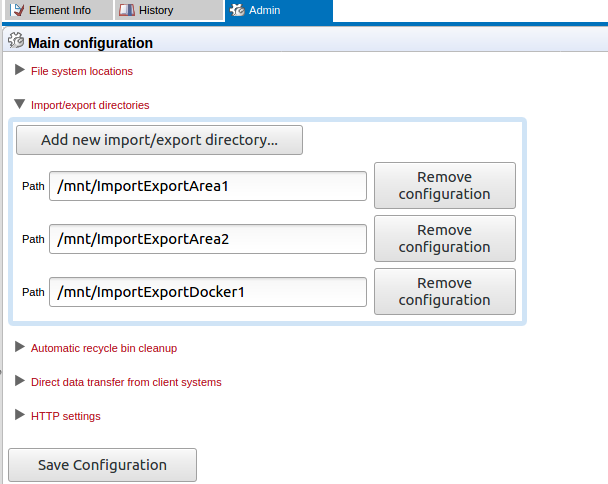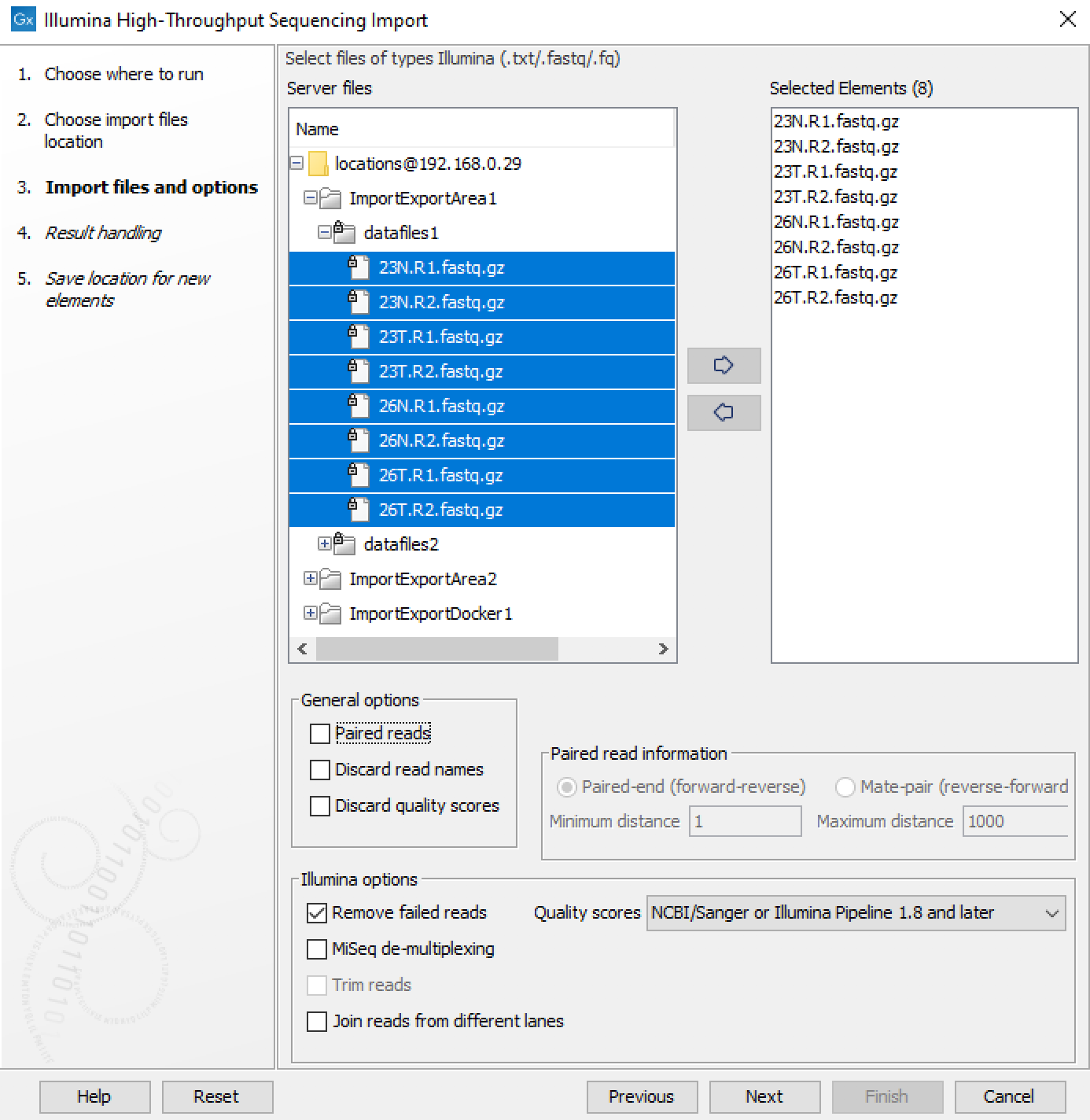Accessing files on, and writing to, areas of the server filesystem
In various situations, the CLC Server needs to read from or write to files on the filesystem outside areas intended for CLC data. Examples include when the data will be imported into the CLC Server and when BLAST databases are made available to be searched using functionality of the CLC Server. Areas that the CLC Server should have read and write access to are configured as Import/export directories in the web administrative interface, under the Main configuration tab. See figure 3.3.
Note: On grid setups and job node setups, an area configured as import/export directory must be a shared directory, accessible from the nodes and from the master server.
Folders configured as import/export directories must be readable and writable by the user that runs the CLC Server process. Users logged into the CLC Server from their Import/export directories can access files in that area, and potentially write files to that area. However, it is the user running the server process that actually interacts with the file system.
Permissions can be set on import/export directories, restricting access to certain groups. This is done under the Global permissions tab of the web administrative interface.

Figure 3.3: Import/export directories are configured under the Main configuration tab.
Press the Add new import/export directory button to enter the relevant path. The specified folder and its subfolders will then be available to CLC Workbenches logged into the CLC Server when relevant activities, such as import and export, are carried out.
If direct data transfer has been enabled, then CLC Workbench users can import data from their local file system to the CLC Server. These files are transferred over the network, placed as temporary files in the area configured for this purpose, which will be an import/export directory, and then imported. Direct data transfer configuration is described in Direct data transfer from client systems.
Whether or not direct data transfer has been enabled, they will be able to select file from under areas configured as import/export directories, as illustrated in figure 3.4).

Figure 3.4: A CLC Workbench user can choose to import data using the CLC Server they have logged into and then select files for import that are located in import/export directories.
Note: Import/export directories should NOT be set to subfolders of any defined CLC file or data location. CLC Server file and data locations should be used for data imported into or generated by the CLC software. Import/export directories are intended for holding other data, for example, sequencing data that will be imported, data that is exported from the CLC Server, or BLAST databases.
